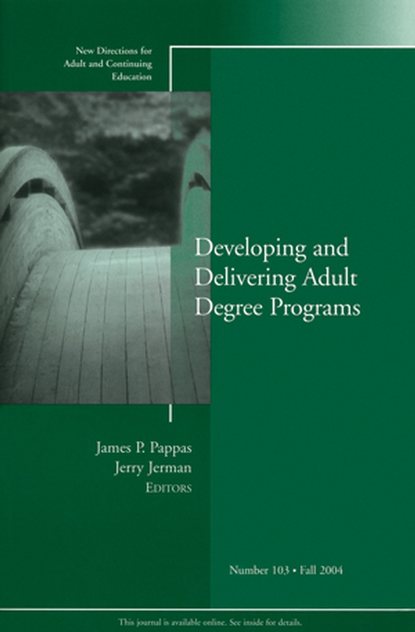
Developing and Delivering Adult Degree Programs скачать fb2
Jerry Jerman - Developing and Delivering Adult Degree Programs краткое содержание
This issue explores the growing field of adult degree programs and considers the theoretical underpinnings of such programs and hands-on issues as curriculum, faculty, marketing, technology, financing, and accreditation, all with a goal of informing and equipping both scholars and practitioners. More and more adults who have been out of school for many years have turned to colleges and universities to complete undergraduate and graduate degrees that will make them competitive in the workforce, fulfill a professional requirement, or enrich them intellectually. Higher education institutions and many private organizations have responded to this demand by creating innovative degree programs aimed specifically at mature learners, students who want to self-design their educational programs and do not hesitate to change institutions if they believe their needs are not being met. This explosive growth in adult degree programs is largely the result of distance education technologies and the Internet. Other significant factors include the potential such programs have for providing additional revenue streams for institutions, the fierce competition from the private sector and other higher education institutions, and the rising interest in interdisciplinary programs. This is the 103rd volume of the Jossey-Bass quarterly report series New Directions for Adult and Continuing Education.
Чтобы оставить свою оценку и/или комментарий, Вам нужно войти под своей учетной записью или зарегистрироваться



